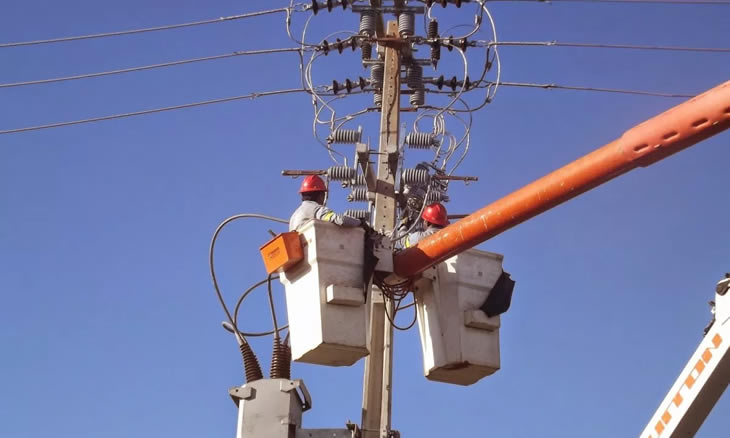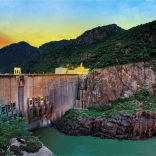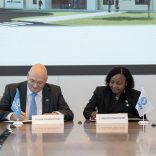Mozambique nears deal to revive $20 billion Total gas project
Over quarter of a million new connections to EDM grid

File photo: EDM
New connections to the national electricity grid benefitted 257,490 households in 2018, according to the chairperson of Mozambique’s publicly-owned electricity company, EDM, Aly Sicola.
Speaking in Maputo on Thursday, at the opening of an EDM national meeting, Sicola admitted that this apparently impressive figure was only 86 per cent of EDM’s target for the year.
Over the year, the number of EDM clients rose from 1,641,151 to 1,890,165, an increase of 15.2 per cent. The percentage of the Mozambican population that now have electricity in their home has now risen to 31 per cent.
The electricity invoiced in 2018 was four per cent higher than in the previous year, and reached 4,107 gigawatt-hours. Consumers have had to pay for this. Over the past three years, EDM’s tariffs have risen by 132 per cent.
Over the year, Sicola said, EDM had completed the Maputo combined cycle thermal power plant, which can generate 160 megawatts, the Zimbene and Massinga sub-stations, the 275 kilovolt line to Ressano Garcia on the South African border, and the 110 kv transmission line between Lindela and Massinga, in Inhambane province. New transformers had been installed in five substations, while the 41 megawatt solar power station in Mocuba is currently in its test phase.
Sicola announced that EDM has completed the electrification of all 154 district capitals. The last districts to be electrified were Luabo, Mulevala and Derre, in Zambezia province, and Doa in Tete. The frontier towns of Milange, in Zambezia (on the border with Malawi) and of Espungabera and Rotanda, in Manica (on the border with Zimbabwe) were also electrified.
Sicola mentioned the launch of the “Energy for All” programme, intended to allow universal access to electricity by 2030.
He urged all EDM workers “to give the best of your intelligence in pursuing and achieving the objectives laid down by the government in its five year programme, in order to improve the living conditions of Mozambicans. Providing electricity is not like supplying any other product – it requires a great deal of commitment, seriousness and responsibility”.
The main challenges facing EDM, Sicola said, were continual increase in access to energy, improvements in the reliability and quality of the services provided, and designing new power generation projects, including alternatives to the Cahora Bassa dam, which is currently the main supplier of the electricity distributed by EDM.












Leave a Reply
Be the First to Comment!
You must be logged in to post a comment.
You must be logged in to post a comment.